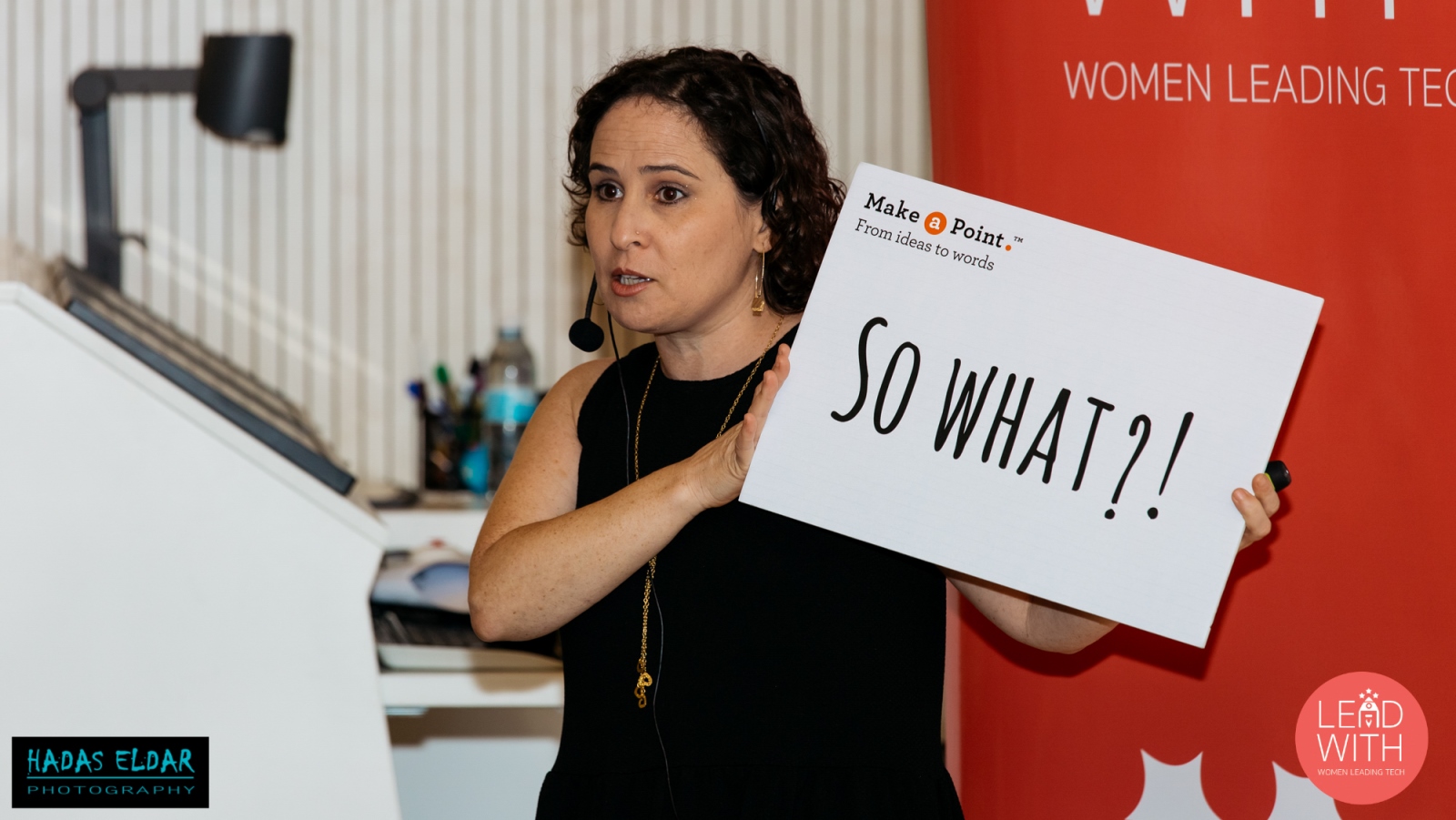Though we live in an age of instant messaging, the art of delivering an effective spoken message is difficult to master.
Just ask any executive preparing for a staff meeting, sales agent preparing a client presentation, startup entrepreneur preparing for a pitch competition, expert preparing a TED Talk, or press agent preparing a statement.
“It’s not just about body language or proper English. It’s about the ability to have a conversation and make a clear point. That skill is not there for many people anymore,” says Lior Student, a former speaker trainer who distilled her experience into a Tel Aviv-based message-crafting business, Make a Point.
In 2010, Make a Point was launched as a consultancy dedicated to helping clients crystalize ideas, articulate the essence and deliver a powerful message. But professional wordsmiths aren’t accessible to everyone.
Student saw plenty of online services to help people with various parts of the message-making process, such as brainstorming or building a PowerPoint presentation. But she found nothing to guide people from start to finish.
“So we decided to commoditize and democratize message development,” Student tells ISRAEL21c.

Major corporate clients
In 2015, Student parlayed her experience at companies in Israel, India and the US into a unique web-based DIY workflow tool that guides users through a flexible five-step ideas-to-message process. The final message can be sent for collaborative feedback and exported to print, PowerPoint, video, blog or wherever else needed.
“It’s really about being prepared and knowing how to begin. People say you can change the world one message at a time. If you use our tool several times you’re changing the way you prepare and work. Sometimes it’s a complete 180 turn.”
https://youtu.be/3ggkivaciTw
People can try the service with a 14-day trial. Subscriptions cost $20 per month for unlimited projects.
Among Make a Point’s subscribers are multinational companies such as Amdocs, NICE, Cisco, Applied Materials, Teva, Microsoft, Verint, Ernst & Young, Strauss Group, Merck, Philips, Hebrew University, Tel Aviv University and IDC Herzliya.
Oren Amiram of NICE Systems says what he likes best about Make a Point “is the structured yet flexible method – moving one step after another, with the ability to return to a previous step if changes are needed. I like that you can consult with an external party and the guidance – the pop-up alerts when a message is too long or less desired wording is used.”
Make a Point is building an affiliate network among public relations-marketing-branding companies in the UK, India and Israel that are seeking a digital tool to help clients with messaging.
The service is available only in English for now. Student has gotten requests for French and German.
“We’d like to do that down the line, because messaging is cultural, and there is a need to communicate globally,” says Student. “Unfortunately I’ve seen that people don’t know what a message is and don’t know how to get there, so we give them a sort of GPS.”
Raising $2 million
The nine-person company, originally bootstrapped with $200,000, is seeking to raise $2 million to open a UK office, add artificial intelligence and chatbox tools, develop enterprise training packages and market globally.
“Later on we will go B2C as well,” says Student.
Her brother Amir is Make a Point’s marketing and business development expert. “I came from the enterprise side and developed the methodology, while Amir came from the entrepreneurial side. We complement one another,” she says.
The siblings were raised in Israel and in suburban Boston. Lior Student won a town-wide speech contest in eighth grade, triggering her career in communications.
She says that Make a Point’s DIY guide took about a year and a half to perfect, with constant input from existing clients. “The work is always about simplifying to the minimum needed to deliver the message.”
The principle is the same no matter if that message is going to be transmitted to one person or 500 people; if the message is 20 minutes long or one minute long; if it’s to be delivered in person or virtually.
“It’s all about finding the right message at the right time. These are daily professional opportunities to deliver messages, and it’s make or break,” says Student. “Failing to prepare is preparing to fail.”
For more information, click here.
Fighting for Israel's truth
We cover what makes life in Israel so special — it's people. A non-profit organization, ISRAEL21c's team of journalists are committed to telling stories that humanize Israelis and show their positive impact on our world. You can bring these stories to life by making a donation of $6/month.








